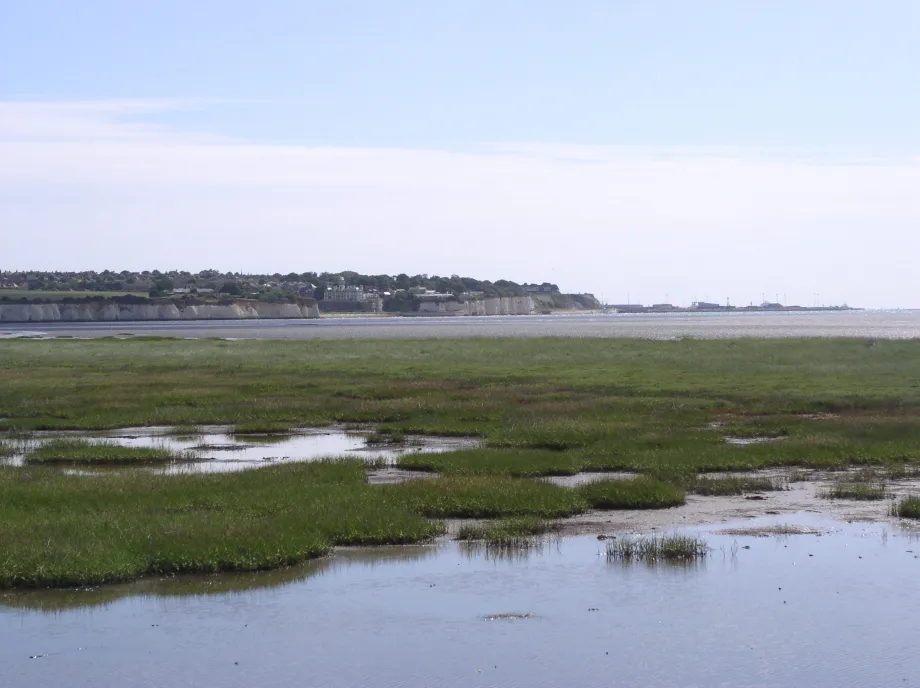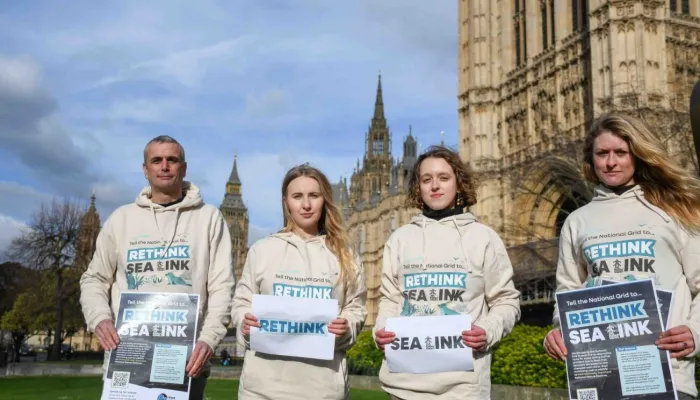
Since the Sea Link plans were announced, Kent Wildlife Trust has been calling on National Grid to ‘Rethink Sea Link’ and choose a less environmentally harmful route and earlier this year the conservation charity spoke to MP Sir Roger Gale, who outlined the Ise of Grain as an alternative route for the cable. In this interview, which was aired in March on the Trust’s Talk on the Wild Side podcast, presented by Rob Smith, MP Sir Roger Gale told the show:
“I have absolutely no confidence in or trust in National Grid whatsoever. It seems to me that the claims that they have made are at best disingenuous. They say they've looked at alternatives. Well, they may have looked at them, but they haven't looked at them or studied them thoroughly in my view. In this case, Kingsnorth is an obvious option. The Dutch offshore their infrastructure for projects such as this and do it very successfully. If the Dutch can do it, we can do it.
“If they want to get power into London and down to Kent, that is a more obvious and sensible option than the route they're trying to choose and the reason I'm trying to choose the (Pegwell) route is wholly commercial in my view. I think this is more about some wishful thinking that we might one day sell power to mainland Europe and therefore if we've got the infrastructure running down to Sandwich, we can take a line across the channel and flog electricity.”
“That's not going to happen. All of the traffic - almost - virtually all of the traffic into power terms across the Channel has been one way and it's been from mainland Europe into Britain, not the other way round.”
Since speaking with the show, a boundary change saw Sir Roger Gale elected as the MP for Herne Bay and Sandwich and he has continued to campaign against the Sea Link proposal. Taking the responsibility for East Thanet is newly elected MP Polly Billington also spoke out against the grid’s Sea Link plans. After meeting with Kent Wildlife Trust’s campaign team, she said:
“I am very concerned about the lack of transparency demonstrated by National Grid in their decision-making and selection of this site which is so environmentally precious. As a private company, their bottom line might be their overriding concern, but residents in Thanet want assurances that nature is protected and restored as well as securing clean energy infrastructure: both are vital to tackling climate change.”
Planning and Policy Officer, Emma Waller who is leading Kent Wildlife Trust’s response to the Sea Link proposal says:
“The announcement that Nautilus is moving to the Isle of Grain should reopen the discussion around the potential of moving Sea Link to the same site. Given how environmentally damaging the current Sea Link plans are, we would like to see, at bare minimum, a feasibility study around this possibility carried out by National Grid.
“There appear to be several options for Sea Link, yet the current plans will cause significant disturbance to wildlife at a site with multiple statutory conservation designations that should be protected. This includes Minster Marshes, the proposed converter and substation site, which has been identified as functionally linked land, providing important foraging and roosting grounds for bird species at Pegwell Bay. Once this wildlife is lost, it is gone forever, so we would strongly urge National Grid to 'Rethink Sea Link' and consider the other options available.
“We support renewable energy, but not at the cost to wildlife, particularly when the habitats at risk of the project, such as the mudflats and saltmarsh, are already supporting us to mitigate climate change by acting as natural carbon sinks.”
Sea Link involves installing an energy cable linking Kent and Suffolk and will also have serious implications for wildlife in Suffolk. Kent Wildlife Trust is backing a call from Suffolk Energy and Action Solutions to write to Secretary of State Ed Miliband welcoming the approval of Nautilus and asking for a reassessment of the Lion Link project and better use of brownfield sites. You can find out more here.
In December 2023, Kent Wildlife Trust launched its “Rethink Sea Link” campaign, asking National Grid to consider less environmentally harmful routes for the project. The charity says it supports renewable energy but not at the cost of wildlife, especially when alternative options are available.
Write to Secretary of State, Ed Miliband
Those wishing to support the Rethink Sea Link Campaign can email Secretary of State, Ed Miliband via [email protected]
Points to consider raising:
- As a resident of Kent, you are concerned about the impact that National Grid’s Sea Link Project will have on wildlife when alternative routes are available.
- The recent U-turn by Ofgem provides a viable alternative option is available to the project.
- Examine bigger, joined up solutions - pooling offshore energy resources enable cost efficiencies, saving billions in infrastructure costs.
- Transporting energy offshore from generation sites closer to demand reduces grid constraints and minimises reliance on fossil fuel backups.
- Offshore energy transport streamlines planning processes, cutting costs tied to route permissions and compulsory land purchases.
- Utilising brownfield onshore sites offers faster planning approvals, promotes local economic regeneration, and reduces environmental and community impacts.

